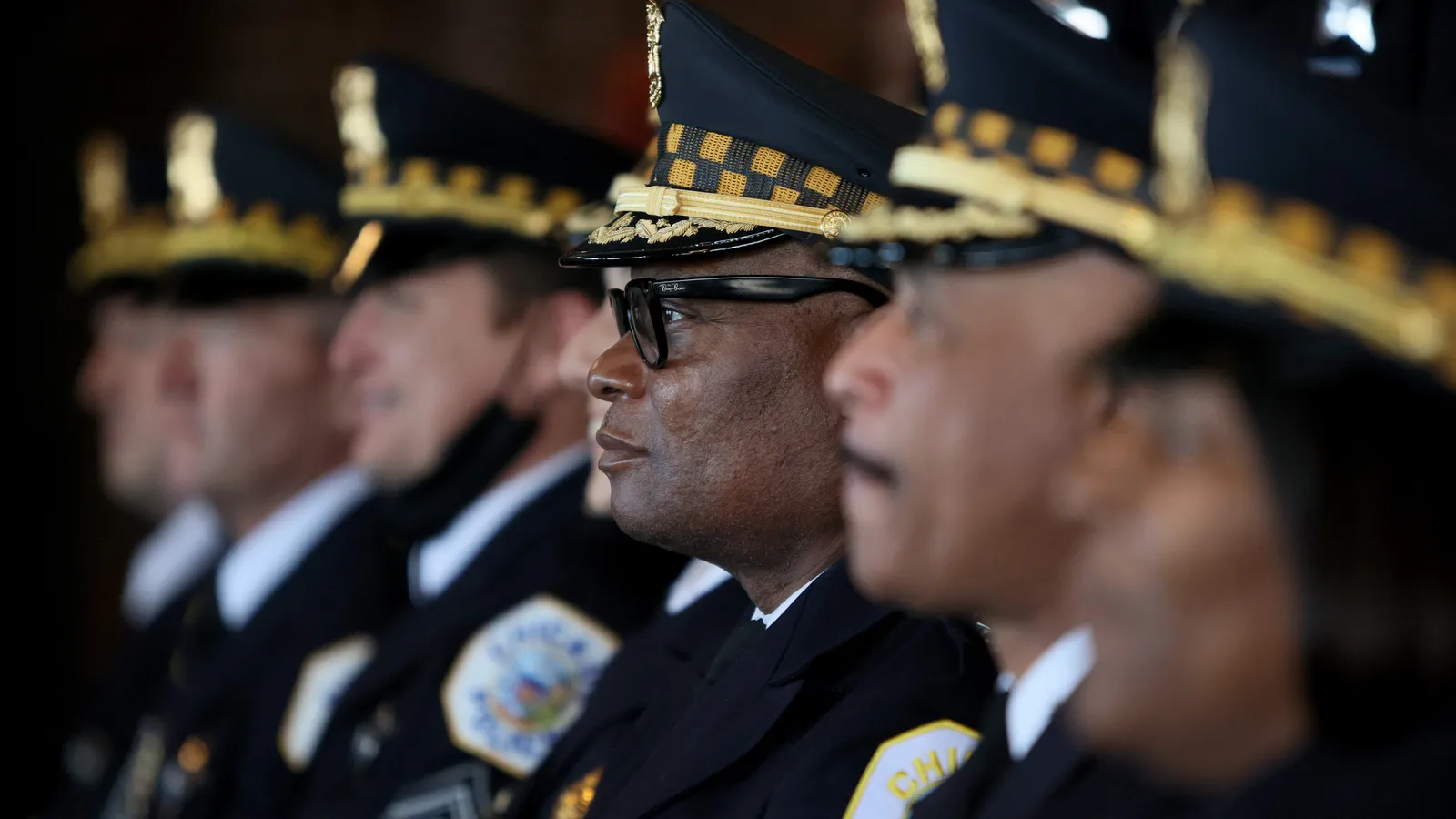David Brown, the superintendent of the Chicago Police Department, retires today after three years on the job.
Why it’s important The top police officer under Mayor Lori Lightfoot had a difficult tenure marked by rising crime, internal strife, and delays in police reforms.
Backstory: Brown arrived in Chicago from Dallas, taking over as department head during the start of the pandemic and months before the summer of unrest in 2020.
He made it famously his mission to reduce Chicago’s annual homicide rate to under 300, a level not seen since 1957.
What actually happened was that Brown guided the police through violent upsurges that occurred during the pandemic, including 802 homicides in 2021—the highest number in Chicago in more than 25 years.
Brown’s department witnessed record lows in crime that year, despite a spike in violence in Chicago and around the nation.The number of homicides in this area decreased in 2022, however they remained significantly higher than before the pandemic.
What they’re saying: In a statement released earlier this month, Lightfoot praised Brown for his contributions to the department and the city, highlighting his “leading a double-digit reduction in violent crime in 2022” and “record amount of illegal gun recoveries for two consecutive years.”
She also commended Brown for “promot[ing] more women than ever before in the history of the department to the senior exempt echelons.Yeah, but Brown also left behind a report from the city’s inspector general that criticized his handling of the rioting that followed the murder of George Floyd.
The CPD was “outflanked, under-equipped, and unprepared,” according to the study.
According to the report, it was a controversial decision among police for Lightfoot and Brown to order the raising of downtown bridges in order to assist contain demonstrators.
The mystery: Shortly after the summer of 2020, Brown overhauled the police force, assigning officers from gang violence units—who were familiar with particular communities and high-crime areas—to patrol duties elsewhere.
The decision was made in part because of the declining number of cops, but police supervisors allegedly found it frustrating.
Additionally, Brown was outspoken about his commitment to the changes detailed in the consent decree that was required by the court in 2019.





